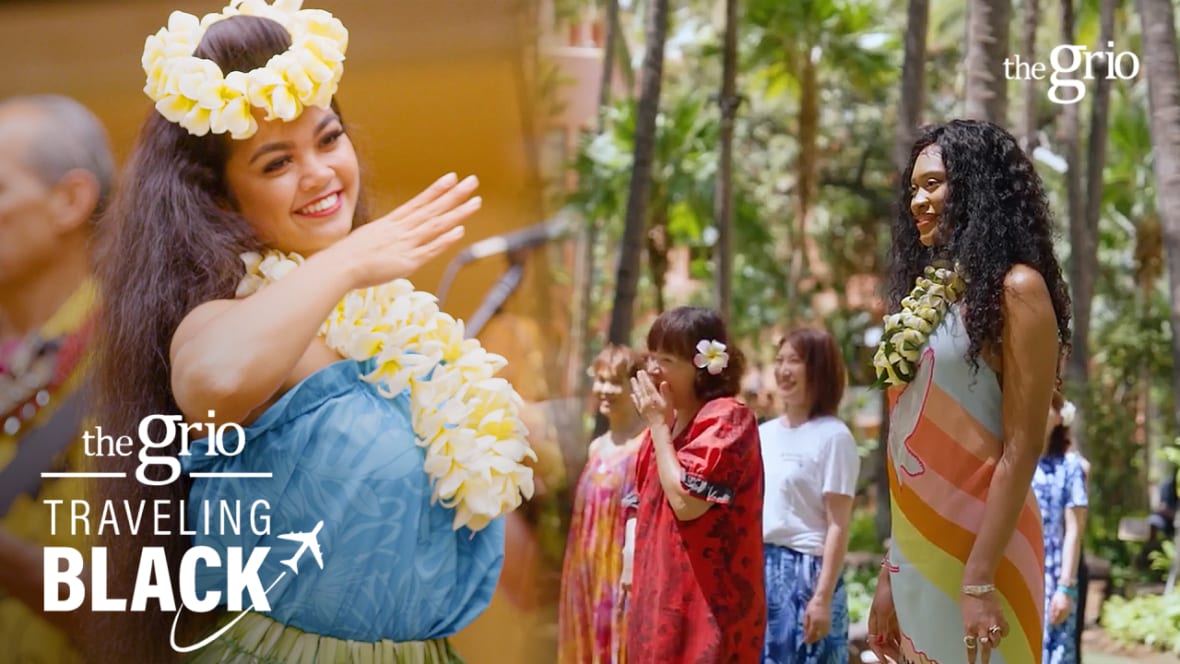We bring news that matters to your inbox, to help you stay informed and entertained.
Terms of Use and Privacy Policy Agreement
WELCOME TO THE FAMILY! Please check your email for confirmation from us.
Episode one of “Traveling Black” takes viewers to Oahu, Hawaii, to catch some waves, see the sights and explore the history of hula.
Travel is a 360-degree experience that allows us to collect information, images, and memories that last a lifetime while experiencing firsthand a cultural perspective often different from our own. That is why theGrio is launching “Traveling Black,” a new travel series where host Noel Cymone Walker explores the breadth of American culture.
With 50 states, people often forgo and forget about the lure we have in our very own backyard. However, the last few years of international travel restrictions — although we are now close to regularly scheduled programming — gave us a chance to tune into destinations closer to home. Exploring those spaces is the premise for “Traveling Black.”
In episode one of this new series, Noel takes us to Hawaii, an archipelago so lush many forget it is a part of the United States. Hawaii became the 50th and final state in the U.S. in 1959 after being a territory since 1900 and is comprised of eight major islands, atolls, and smaller islets featuring tropical coasts, volcano and lava deserts, misty plateaus, craggy ocean cliffs, and fern and bamboo forests. It’s far more diverse terrain than most of the contiguous U.S. — but that is what makes it so cool.
While the scenic beauty of Hawaii is stunning, the story of Hawaii and its culture is even more breathtaking. Native Hawaiians and Polynesians met some 1500 years ago when the first Polynesians settled in Hawaii after sailing the Pacific seas using the stars as their guide. Since then, much of the two cultures have merged, creating a unique heritage of traditions and languages like hula — the first language of Hawaiians, who had no written language until the 1820s. Before that time, the visual dance was the mother tongue and a way to communicate with the gods and deities and pass down knowledge from generation to generation.
However, when European and Christian missionaries invaded the island, they deemed the dance a pagan ritual, and it was outlawed, causing hula to go underground for years. Hula was officially restored — albeit in a different form — in schools and teachings by the Hawaiian government in the 1970s after the civil rights movement for Black Americans on the mainland inspired Hawaiians to reclaim and revive their traditions. Today, hula is remembered and honored as one of the most sacred parts of traditional Hawaiian culture; Noel explores all of this and more in the first episode of “Traveling Black.” Check it out above.
Noel Cymone Walker is an NYC-based writer specializing in beauty, fashion, music, travel, and cultural anthropology. She has written and produced visuals for several notable publications such as The Recording Academy/The Grammys, The Fader, Billboard, OkayPlayer, Marie Claire, Glamour, Allure, Essence, Ebony, and more.
TheGrio is FREE on your TV via Apple TV, Amazon Fire, Roku, and Android TV. TheGrio’s Black Podcast Network is free too. Download theGrio mobile apps today! Listen to ‘Writing Black‘ with Maiysha Kai.

